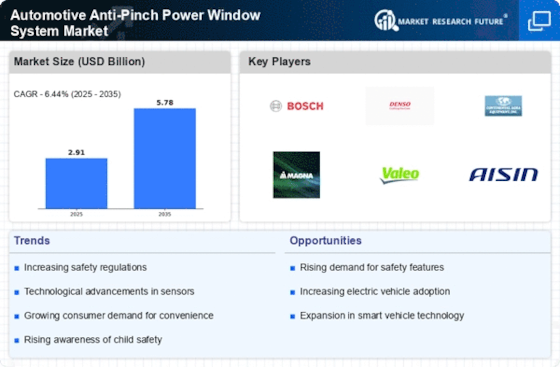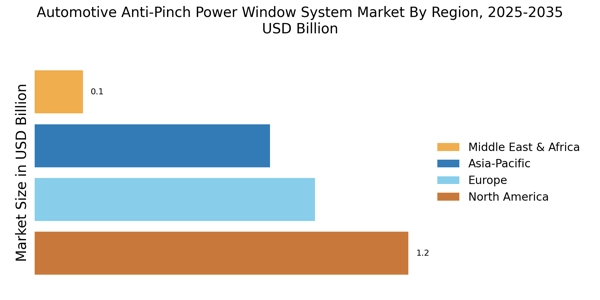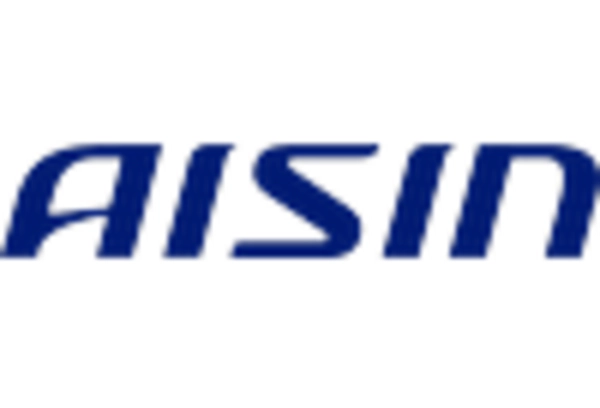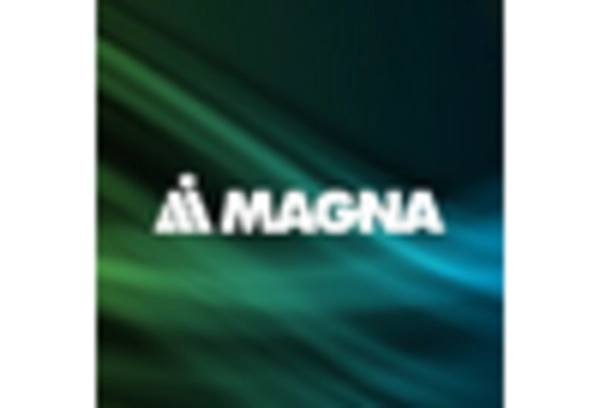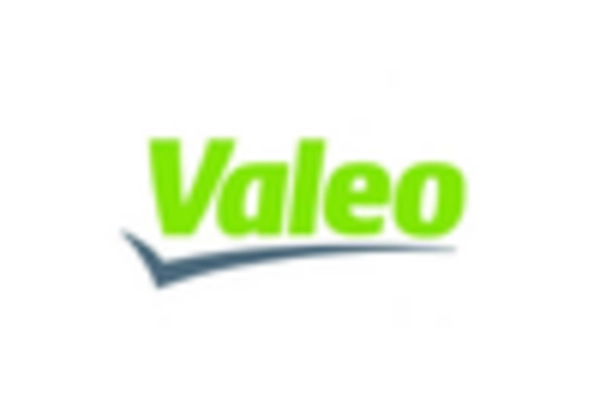Technological Innovations
Technological advancements play a pivotal role in shaping the Automotive Anti-Pinch Power Window System Market. Innovations such as advanced sensors and smart control systems enhance the functionality of power windows, allowing for more precise detection of obstructions. These technologies not only improve safety but also contribute to the overall user experience. The market is witnessing a shift towards the integration of artificial intelligence and machine learning in window systems, which could lead to more responsive and adaptive features. As manufacturers strive to differentiate their products, the incorporation of cutting-edge technology is expected to become a key driver of growth in the anti-pinch power window segment.
Increasing Safety Regulations
The Automotive Anti-Pinch Power Window System Market is experiencing a surge in demand due to the increasing safety regulations imposed by various governments. These regulations mandate the incorporation of safety features in vehicles, particularly in power window systems, to prevent injuries during window operation. As a result, manufacturers are compelled to integrate anti-pinch technology into their designs. This trend is reflected in the growing number of vehicles equipped with such systems, which is projected to reach approximately 60% of new vehicle sales by 2026. The emphasis on consumer safety is likely to drive innovation and investment in this sector, further solidifying the importance of anti-pinch systems in automotive design.
Growing Electric Vehicle Adoption
The rise in electric vehicle (EV) adoption is a notable driver for the Automotive Anti-Pinch Power Window System Market. As the automotive landscape shifts towards electrification, manufacturers are increasingly focusing on integrating advanced safety features, including anti-pinch technology, into their EV models. This trend is supported by data showing that EV sales are projected to account for over 30% of total vehicle sales by 2030. The unique design and operational characteristics of electric vehicles necessitate the incorporation of sophisticated window systems, making anti-pinch features a critical component in ensuring passenger safety and comfort in this evolving market.
Consumer Demand for Enhanced Comfort
The Automotive Anti-Pinch Power Window System Market is significantly influenced by consumer demand for enhanced comfort and convenience in vehicles. Modern consumers increasingly prioritize features that simplify their driving experience, and power windows equipped with anti-pinch technology are seen as essential. This demand is reflected in market data, indicating that vehicles with advanced window systems are preferred by a substantial segment of buyers. As automakers respond to these preferences, the integration of anti-pinch systems is likely to become a standard feature in mid-range and premium vehicles, thereby expanding the market reach and driving sales.
Regulatory Compliance and Liability Concerns
Regulatory compliance and liability concerns are driving the Automotive Anti-Pinch Power Window System Market as manufacturers seek to mitigate risks associated with potential injuries. The legal implications of failing to comply with safety standards can be severe, prompting companies to invest in anti-pinch technologies. This proactive approach not only helps in adhering to regulations but also enhances brand reputation and consumer trust. As the automotive industry faces increasing scrutiny regarding safety features, the integration of anti-pinch systems is likely to become a standard practice, thereby influencing market dynamics and encouraging further innovation in safety technologies.


